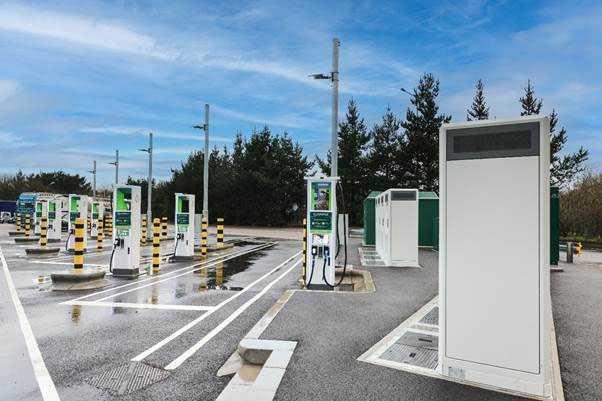Businesses now anticipate that 15 per cent of their current HGV driver vacancies will not be filled. So what can be done? Sally Gilson, head of skills campaigns at FTA, shares some advice
The nationwide shortage of HGV drivers is threatening the UK’s logistics sector and we are reaching crisis point; businesses now anticipate that 15 per cent of their current HGV driver vacancies will not be filled and a further 36 per cent expect a long delay to find the right candidate.
This was one of the key findings of FTA’s Logistics Report, launched in partnership with Santander Corporate and Commercial in May 2019, which polled the opinions of more than 500 freight and logistics businesses operating in the UK and internationally.
The logistics sector is the lifeblood of the nation’s economy, employing more than 2.7 million people and contributing £124 billion gross value added (GVA). Our economy simply cannot operate without HGV drivers – businesses would come grinding to a halt and Britain would cease trading.
But we are facing serious challenges in the recruitment and retention of these workers, due to an ageing workforce, competition for skilled staff, the ineffective apprenticeship levy, and shifting migration patterns in response to Brexit.
In this article, FTA, the business organisation which speaks for the logistics sector, shares its three-pronged recommendation on how this issue can be tackled.
Attract new talent
With the average age of an HGV driver now 48 years old – as revealed in the survey – it is clear the industry needs to attract and retain a new generation of workers; we must show there are promising career opportunities and long-term prospects on offer to convince them that this is a job worth pursuing. After all, the logistics sector is at the heart of every facet of British life, from hospitals to business, schools, retail and manufacturing. HGVs drivers support the nation’s well-being, economy and prosperity, by ensuring that everyone has access to the goods and services they need, but too often, this vital contribution is often overlooked.
FTA has established a partnership with Think Logistics, an arm of educational charity Career Ready, to build links between schools, colleges and employers to communicate the opportunities a career in logistics presents to young people. But awareness is only one piece of the puzzle: the government must rethink its treatment of drivers; only by delivering promised upgrades to driver facilities and infrastructure will it be viewed as an aspirational career choice. Furthermore, the apprenticeship levy is not working for logistics businesses across the UK and needs to be radically overhauled if the workforce of tomorrow is to be trained effectively.
Repair the apprenticeship levy
The apprenticeship levy is a tax on employers which can be accessed to fund apprenticeship training. But despite contributing large sums to the apprenticeship levy fund, logistics businesses have not been able to draw down funds to train the workforce of tomorrow, since the standards against which to train them have yet to be approved. Any moneys still unused after two years of payment will be taken by the Treasury. This means that the levy is simply an additional tax on those businesses which desperately need to use this money to train their future workforce.
By insisting that businesses plough funding into a levy which they cannot utilise, the government is preventing the development of existing workers in the logistics sector, which reduces motivation and increases staff turnover. In essence, this means businesses will have to pay twice to train staff, thus removing valuable investment from the bottom line at a time when the logistics industry is under extreme financial pressure.
The government needs to develop a workable apprenticeship standard and training framework or, alternatively, reassess the role of the apprenticeship levy and turn it into a training levy, which would enable its use where it is most urgently needed.
Amend future immigration policy
The UK’s future immigration system needs to accommodate the requirement for workers with practical qualifications – as well as academic – if Britain is to keep trading effectively after Brexit. After all, 13 per cent of HGV drivers currently working in the UK are EU nationals. But the Migration Advisory Committee (MAC) report fails to recognise the importance of these workers; it is deemed to be ‘low skilled’ profession and so drivers are unlikely to be granted access to the UK post-Brexit.
The MAC report, along with the recent review of the Shortage Occupation List (SOL), ignores the value which workers at all levels bring to the logistics sector, one of UK PLC’s most crucial trade drivers. The government must move away from prioritising purely academic classifications and focus more on vocational skills: the regulatory knowledge and the skills required to drive an HGV are complex and must not be dismissed or underestimated.
To ensure that our businesses can continue to be served by the industry which provides the goods and services they need, the government must start recognising and appreciating technical skills within our immigration system too; otherwise, its approach will remove thousands of vital logistics workers from our economy.
Logistics is a flexible, highly adaptable industry, which always goes the extra mile to deliver for its customers. Yet without adequate allowances for training and development, the improvement of driver facilities, and amends to the UK’s future immigration policy, the industry could easily come to a halt due to lack of available skilled staff. While this article focused on the shortfall of HGV drivers specifically, the skills shortage touches every corner of logistics, from technicians to warehouse staff.
FTA is committed to ensuring that the industry has sufficient skilled staff on which to draw as we move into the next decade; we will continue to push government to ensure policies reflect this vital need.






